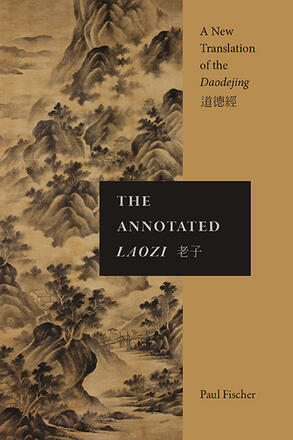
The Annotated Laozi
A New Translation of the Daodejing
Alternative formats available from:
A clear translation and helpful explanations illuminate this ancient classic of self-cultivation for a modern audience.
Description
Written more than two thousand years ago, the Laozi, or Daodejing, is a classic of Chinese intellectual history and has been of foundational importance to cultural and religious history throughout East Asia. It is now venerated as a masterpiece of self-cultivation, with a poetic narrative that remains accessible and relevant even today. Paul Fischer's new, annotated translation aims for fidelity to the original text as well as clarity for a modern audience. Fischer's notes and explanations bring out obscure meanings in ancient Chinese wording and rhetoric, elucidate the connections among the eighty-one short chapters, and clarify the coherence of the work as a whole. Carefully considering the various manuscripts that have been archaeologically uncovered in recent decades, as well as the variations among received versions of the Laozi, Fischer's translation discloses the beauty and meaning of the original. This book will benefit students and readers interested in intellectual history as well as those who want to explore what the text has to say about the meaning of life.
Paul Fischer is Professor of Asian Religions and Cultures at Western Kentucky University. He is the author of Self-Cultivation in Early China (also published by SUNY Press) and the translator and editor of Shizi: China's First Syncretist.
Reviews
"Fischer provides a new and different translation of Laozi's Daodejing … Fischer's translation makes the text intelligible to those formed by contemporary liberalism; it thus provides an alternative to more historically oriented translations." — CHOICE
"Fischer's careful and creative translation offers a very accessible introduction to the received Laozi. While aimed at students and general readers with little or no background in Chinese language or history, the book also provides sufficient context for seasoned sinologists to grapple with, without getting bogged down too much in philological issues or speculative history. The focus on non-supernaturalistic religion, an ethics of non-contentiousness, and a philosophy rooted in fallibilism is a refreshing way to be re-presenting the Laozi to a contemporary audience." — Joseph E. Harroff, American University